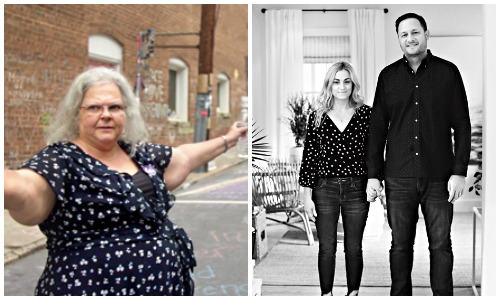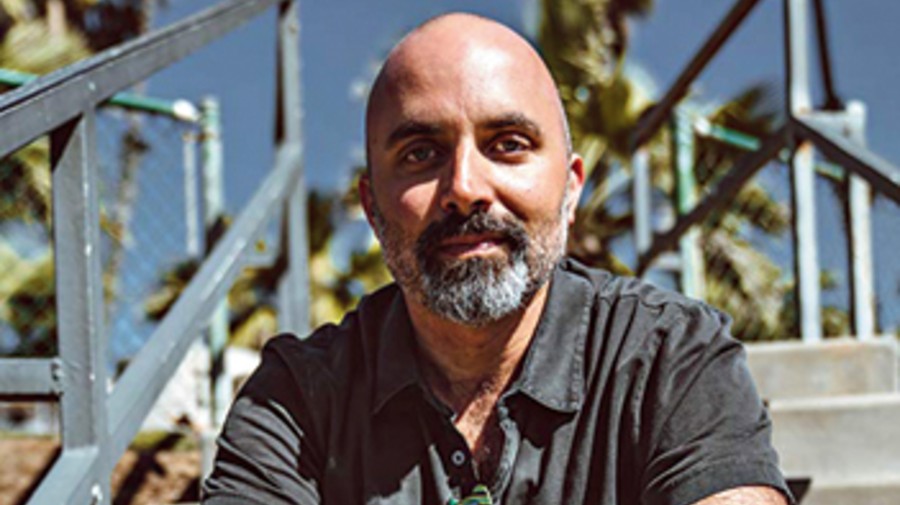Indian-American film-maker Ben Rekhi is in the news for his documentary The Reunited States, which has met with unanimously positive reviews. The 90-minute watch, set in the US, follows four storylines and talks about those who have made it their mission to bring hope and harmony and a culture of listening to the other side in a country that is deeply divided over race and colour.
The Telegraph chatted with Ben on the global relevance of his documentary, the stories he wants to tell and the original film-making voices from India he deeply admires.
Given the times we are living in, the relevance of a documentary named The Reunited States can’t be disputed, and not just for the United States of America. Was there a specific incident which triggered this?
Initially, it was the events in Charlottesville (a terror attack perpetrated in August 2017, when James Alex Fields Jr. deliberately drove his car into a crowd of people who were peacefully protesting the Unite the Right rally) that triggered it. That was the tipping point for this country in a long history of civil rights violence. When that car drove into a crowd of people, it was a horrible display of the ugly side of this country and our history. I was really struck by the mother (Susan Bro) of the woman (Heather Heyer) who had lost her life in that attack. She had suffered this tragedy, but she was able to come out at the other side with this voice of reason by saying, ‘We need to have these difficult conversations with each other in order to avoid further violence’.
I saw her speak at an event and I was just so moved. Here I was... someone who was so upset and fearful and angry about politics and I started wondering who was I to be that way when she had gone through something much worse. I went to speak to her afterwards and I told her, ‘I don’t know how or why, but I really want to be a part of telling your story because I believe your wisdom can help a lot of people now who are lost’. She agreed. And her first day of filming are the first moments of the movie... on the one-year anniversary of Charlottesville.
Apart from this story, which other instances captured in the documentary touched you the most?
The three other storylines we followed in this documentary are people I had met through the author (Mark Gerzon) of the book The Reunited States. I had no idea that there was a book of the same name before I Googled it... I thought it was my own coinage! (Laughs) Mark Gerzon put me in touch with the other three storylines. Greg Orman (American politician and entrepreneur) and Steven Olikara (the son of Indian immigrants from Kerala, Olikara has founded the Millennial Action Project to build a coalition of bi-partisan lawmakers to transform the American government), who feature in the documentary, have journeys of their own in terms of how they are trying to change the politics of our era.
But it was really David and Erin’s story
(David Leaverton, a former Republican strategist, regrets that he contributed to a toxic political climate and with his wife Erin and children, he embarked on an RV trip to meet strangers and learn about their lives) that is the heart and soul of the movie because it’s so personal and so emotional to see this Republican couple travel 50 states to try and learn what divides us and understand the issues of race that are so complicated and are very fiery division points, but they are also deeply personal and are within us.
A sort of ‘aha’ moment for me was realising that a lot of these divisions are within our own hearts. Even if we think we are on the right side of history or on the right side of an issue, our thoughts and actions towards the other side can either be part of the problem or part of the solution. Discovering that a lot of the division is actually within us became the theme of the film.
The US has recently seen a change of political hands, but hate crimes still persist. As someone who has both Indian and American roots, how different is the country today from the one you grew up in?
Growing up as Sikh-American, I was going to the gurdwara one weekend and the church the next weekend. I feel that bridging divides is in my DNA. I have been fortunate to see two different cultures as part of who I am. And so I have always had this curiosity to understand different cultures. America was founded on genocide and slavery, and we have never properly dealt with either. At the same time, like India, America is one of the most diverse countries in the world. This is a country that should stand for global citizenry.
I have always believed in the promise of this country, but I have also been realistic about its challenges. On one hand, there is racism and divide, but the last few years have brought out people who have said that they need to rise to the challenge and change things. And for me that was the case. I asked myself, ‘As a film-maker, what can I do to navigate this new reality and give people hope?’ And this film came out of that.

Susan Bro (left) and David and Erin Leaverton are two of the four storylines that Ben Rekhi brings to life in The Reunited States Sourced by the correspondent
Is there a plan to make this into a series? We do, after all, need unending stories of hope...
I think storytelling has a very important role to play in navigating our world and where we are. Media has been used to divide us, but it can also bring us back together. The last film I did (Watchlist) was set in the world of the drug wars in the Philippines and that was a story of government-sanctioned killing over petty crime. The reason I found that relevant is that the world is on this rightward turn towards authoritarianism. The universal feeling we all have is, ‘How did we get here? How did this populace backlash arise?’ It’s not only important to examine history and what led to this, but also where do we go from here and how do we see the humanity in each other through these difficult times. I would love to continue making stories like this, whether it’s documentary, fiction or non-fiction.
Watchlist was set against the backdrop of the drug mafia in the Philippines, The Ashram was a spiritual thriller.... Do you choose your stories or do they choose you?
That’s such a good question. When I started in this industry, I was very intentional about choosing stories and I would say, ‘Oh this is something that the market wants’ and try and reverse-engineer that. I have now shifted to the thought that the best stories come from a place of true inspiration and which we can’t sometimes explain. The story chooses us to be the vessel to come into the world. So for everything that I do now, I first ask myself, ‘Is this worth fighting for?’ That’s because making films is hard, it involves a lot of doubt and conflict and you have to really believe in it. I have now come around to the idea that I want to do films that really move my spirit. It’s not worth it otherwise.
Are there days when you question choosing this profession or does the passion for film-making override every doubt?
There are definitely days when it’s tough. You can make a film and then it’s out of one’s control... people can either like it or not. However, I have come around to the idea that there is nothing else that I would rather do with my life. And as long as I can get the momentum to put these things into the world, I will continue to do it.
The last time we spoke, you had said that Anurag Kashyap has been an early influence and mentor and that you were interested in making films in India. What’s happening on that front?
There are three films that I am working on right now. One takes place in the US, and one is in India and it could take me there as soon as the end of this year. I can’t say more than that about it at this point, but it’s something that I am really excited about.
Anything coming out of India that left an impact on you recently?
I saw AK vs AK over the holidays and I was completely blown away. It’s such an original story that competes with the best globally. I think there could be an American remake of it, it’s so good. I am always excited to see what someone like Vikram (Vikramaditya Motwane, who directed AK vs AK) does next. He’s a true storyteller. Zoya (Akhtar) always excites me. There are some very strong, original voices that are coming out of India now.











